Eggplant with pepper for the winter - bite off your tongue
From eggplant with pepper, you can prepare an amazing vegetable salad for the winter. It turns out so tasty that just bite off the tongue. This is an old grandmother's recipe, which does not lose its relevance today.
The thing is a combination of vegetables - the main ingredients (eggplant, pepper and tomatoes) should be taken approximately equally, add a little carrots, garlic, season with vinegar and sunflower oil, stew until cooked and put in clean jars.
It is advisable to sterilize the workpieces - for 15 minutes half-liter jars. However, if you keep clean and sterile during cooking, you can simply wrap hot jars with vegetables in a warm blanket and leave overnight.
It will take 65 minutes to cook. From these ingredients, 4 cans of 450 g are obtained.
Ingredients:
- eggplant - 1 kg;
- Bulgarian pepper (red, green) - 1 kg;
- carrots - 500 g;
- tomatoes - 1 kg;
- garlic - 8 tooth .;
- sunflower oil - 150 ml;
- apple vinegar - 100 ml;
- table salt - 25 g;
- sugar to taste.
How to prepare eggplant for pepper for the winter
My tomatoes, cut out the stalk with a seal, clean the cloves of garlic from the husk. We pass the garlic and tomatoes through a meat grinder with a small nozzle.
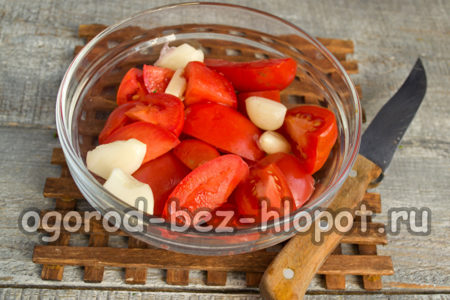
Rub carrots on a coarse grater or cut into thin strips.
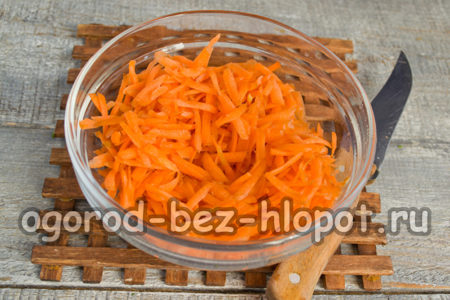
Ripe eggplants with elastic and dense skin without damage and stains are cut into thick slices.
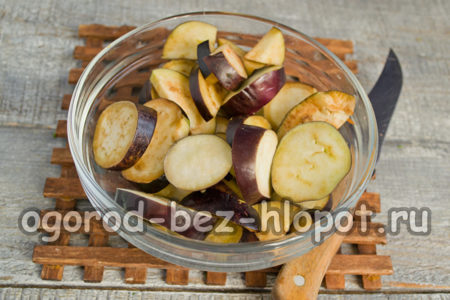
Cut red and green bell peppers into pieces, remove the seeds, rinse under the tap. Then cut the peppers into narrow strips.
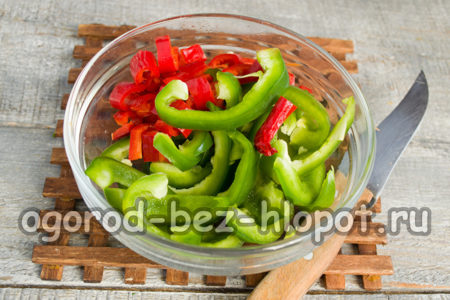
Mix sunflower oil with apple cider vinegar and salt in a saucepan. Add the tomatoes and garlic passed through the meat grinder, pour sugar to taste.
Heat the mixture to a boil over moderate heat. Stir so that the sugar and salt dissolve.
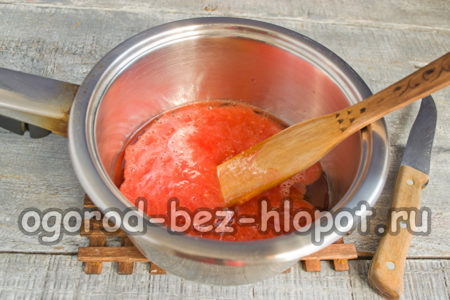
Next, put the sliced bell peppers and grated carrots.
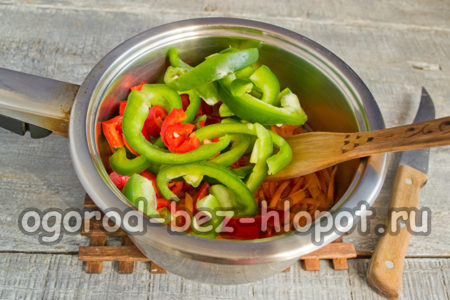
Pour eggplant slices, mix, close the lid tightly.
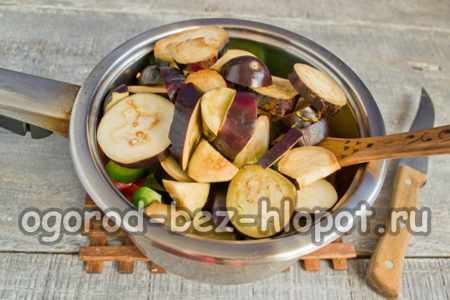
Cook on low heat for about 40-50 minutes after boiling.
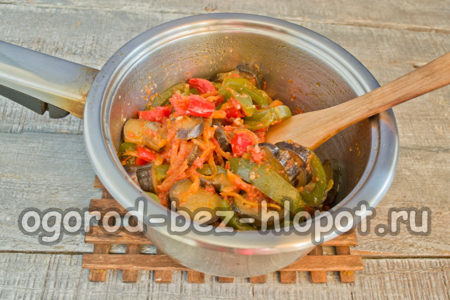
In cleanly washed and dry cans, we spread the hot vegetables, tightly screw the boiled lids.
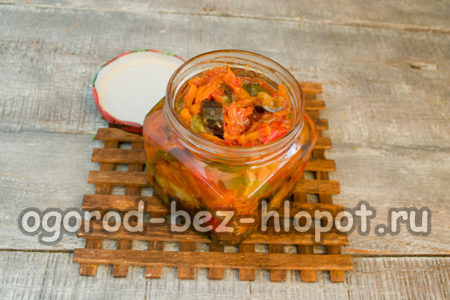
Turn the cans upside down and wrap a thick blanket. We leave the blanks under the covers for the night - the pasteurization process will take place in the warmth.
The next day, remove the jars in a dry, cool place. Storage temperature of workpieces from +3 to +10 degrees Celsius.
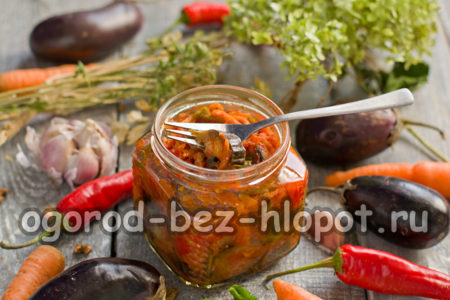

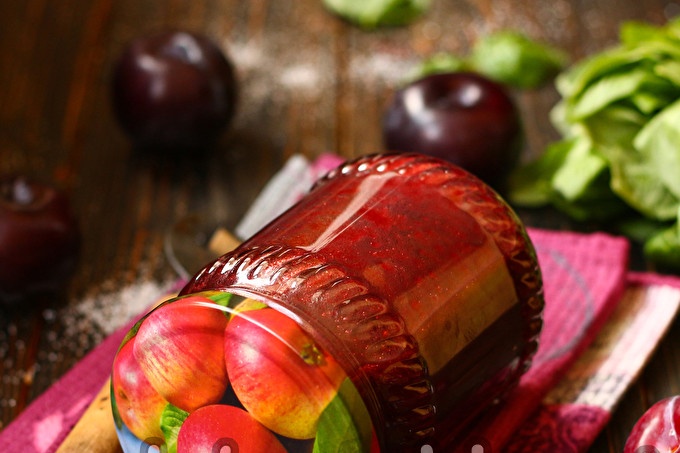
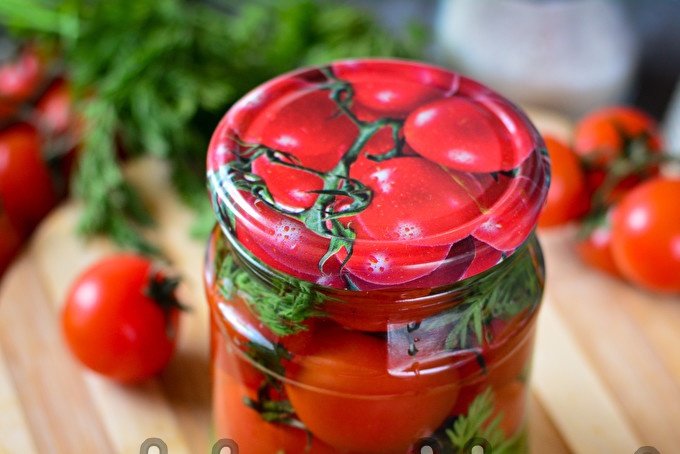
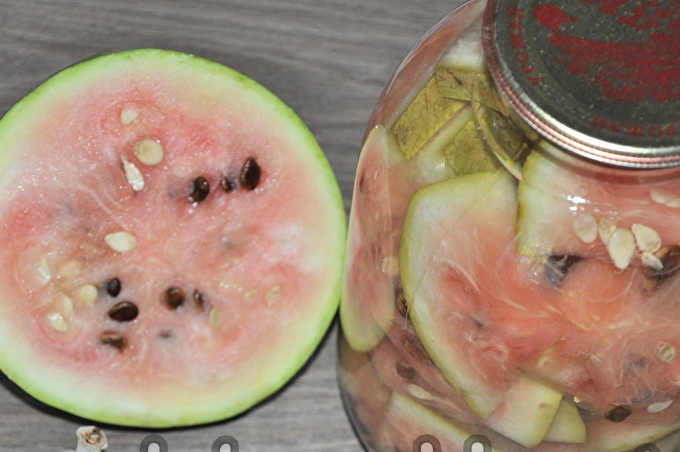
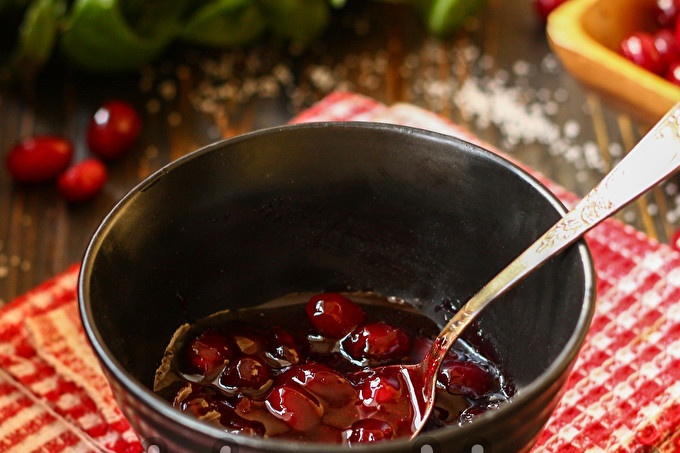 Very tasty and beautiful dogwood jam
Very tasty and beautiful dogwood jam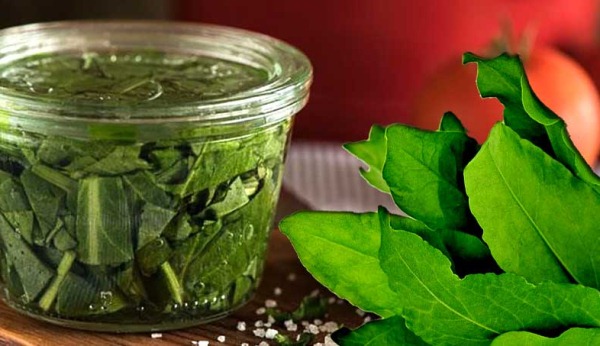 How to preserve sorrel leaves
How to preserve sorrel leaves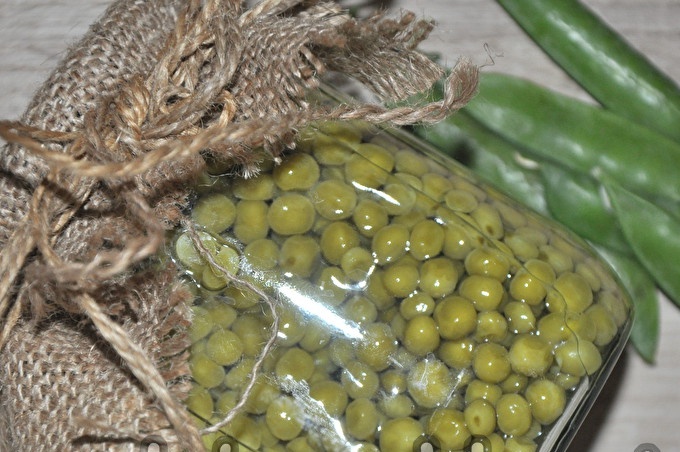 Green peas for winter without sterilization
Green peas for winter without sterilization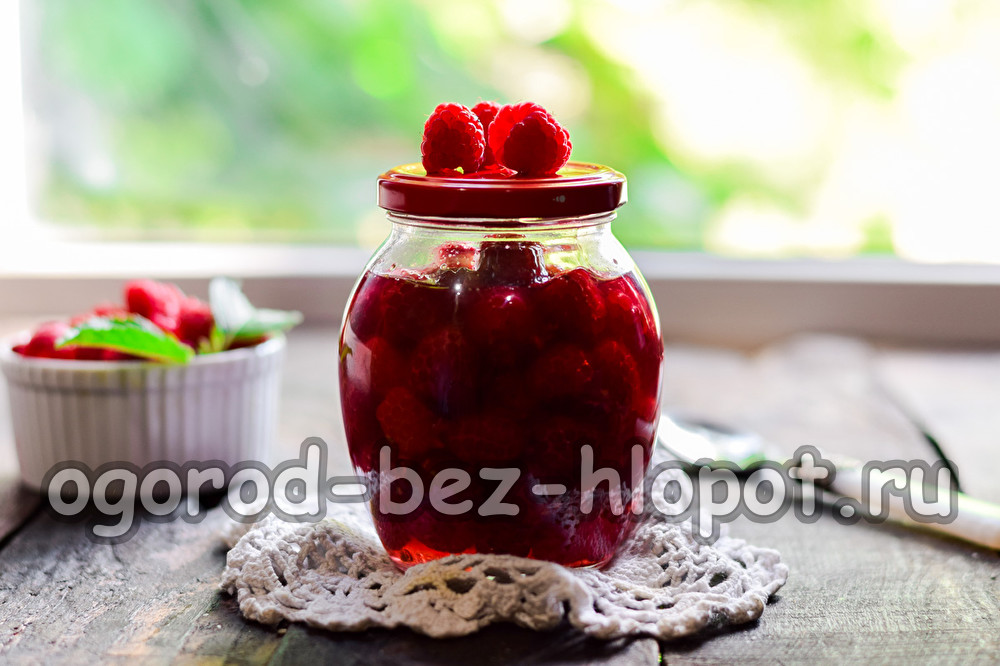 Raspberries in their own juice without sugar
Raspberries in their own juice without sugar